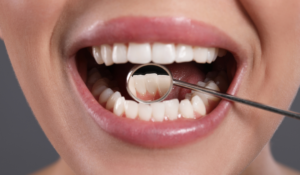In the hustle and bustle of our daily lives, it’s easy to overlook one of the most fundamental aspects of our well-being – water.
Our bodies are approximately 60% water, and staying hydrated is essential for maintaining optimal health.
In this comprehensive guide, we’ll explore ten subtle signals your body may be sending you, indicating it’s time to reach for that water bottle and prioritize hydration.
Persistent Thirst:
The most straightforward sign that your body is in need of water is persistent thirst.
If you find yourself reaching for a drink frequently or constantly feel parched, it’s a clear indicator that your body is craving hydration.
Listen to this basic cue – your body is prompting you to replenish its water reserves.
Dark Yellow Urine:
Your urine color can serve as a reliable indicator of your hydration levels. Dark yellow urine suggests concentrated waste and a potential lack of water.
Ideally, your urine should be light yellow or straw-colored, indicating proper hydration. Monitoring your urine color is an easy and effective way to gauge your hydration status.
Dry Skin and Lips:
Dehydrated skin lacks elasticity and may feel dry or rough to the touch.
Additionally, dry or chapped lips can be a sign that your body is in need of more water.
Your skin is an external reflection of your internal health – keeping it well-hydrated contributes to a radiant and healthy appearance.
Fatigue and Lethargy:
Feeling unusually tired or sluggish could be your body’s way of signaling dehydration.
When you’re not adequately hydrated, your body has to work harder to perform everyday tasks, leading to feelings of fatigue.
If you find yourself reaching for that extra cup of coffee for an energy boost, consider reaching for water instead. Proper hydration is a natural and sustainable way to combat fatigue.
Headaches:
Dehydration can trigger headaches and migraines. The brain is highly sensitive to changes in fluid balance, and insufficient water intake can lead to reduced blood volume and oxygen flow to the brain.
If you’re experiencing frequent headaches, try increasing your water intake and observe if it makes a positive difference. It’s a simple remedy for a common ailment.
Muscle Cramps:
Electrolyte imbalance due to dehydration can lead to muscle cramps. If you’re experiencing cramps, especially during physical activity, it’s crucial to replenish your fluids.
Water helps maintain the balance of electrolytes in your body, preventing muscle cramps and spasms. Keeping hydrated is as vital for your muscles as it is for overall bodily functions.
Dizziness or Lightheadedness:
Dehydration can cause a drop in blood pressure, leading to feelings of dizziness or lightheadedness.
If you find yourself feeling woozy when standing up or changing positions, it’s time to hydrate. Maintaining proper hydration levels supports cardiovascular health and helps prevent these moments of unsteadiness.
Difficulty Concentrating:
Your brain depends on adequate hydration to function properly. If you’re having difficulty concentrating or find your focus wavering, dehydration could be a contributing factor.
Keep a water bottle on hand to sip throughout the day and maintain cognitive function. Staying hydrated is a simple yet effective strategy for optimizing mental clarity.
Constipation:
Insufficient water intake can contribute to constipation. Water helps keep your digestive system moving smoothly, aiding in the breakdown of food and the elimination of waste.
If you’re experiencing constipation, increasing your water intake may offer relief. Hydration is a key factor in promoting a healthy and well-functioning digestive system.
Frequent Illness:
Water plays a vital role in supporting the immune system. If you find yourself getting sick more often than usual, it might be linked to dehydration.
Staying hydrated helps your body flush out toxins and ensures that your immune cells function optimally. Think of water as a natural defense mechanism against common illnesses.
Conclusion :
Your body’s cry for water often comes in subtle signals that are easy to overlook. By paying attention to these signs, you can proactively address your hydration needs and foster overall well-being.
Remember, the benefits of staying hydrated extend beyond quenching your thirst – it’s a fundamental pillar of good health. Take a moment to listen to your body, respond to its cues, and make hydration a priority in your daily routine.
FAQs:
How much water should I drink each day?
The recommended daily water intake varies, but a general guideline is to aim for about eight 8-ounce glasses a day, known as the 8×8 rule. However, individual needs may vary based on factors like age, activity level, and climate.
Can I rely on beverages other than water for hydration?
While other beverages contribute to overall fluid intake, water remains the best choice for staying hydrated. Sugary drinks and caffeinated beverages can have diuretic effects, increasing fluid loss.
Are there foods that can help with hydration?
Yes, several foods have high water content, such as fruits (watermelon, cucumber) and vegetables (lettuce, celery). Consuming a diet rich in these foods can contribute to your overall hydration.
Remember, your body is a remarkable system that communicates its needs. By heeding the signs and prioritizing hydration, you can take a simple yet significant step towards a healthier, more energized you.






